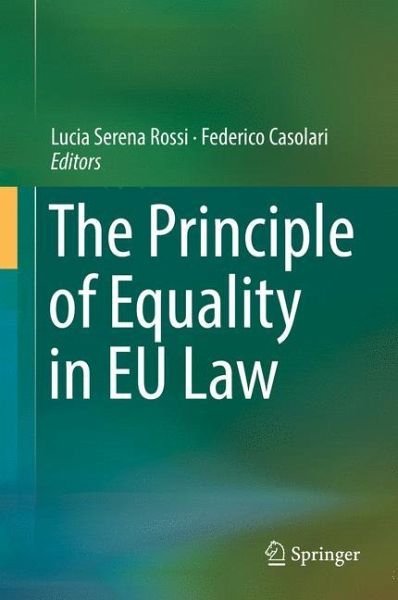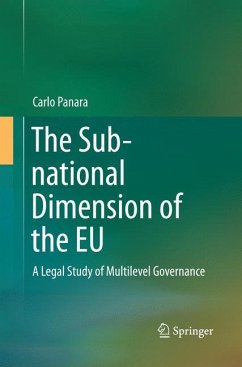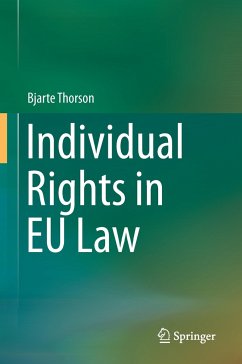
The Principle of Equality in EU Law

PAYBACK Punkte
57 °P sammeln!
This book provides a comprehensive and updated legal analysis of the equality principle in EU law. To this end, it argues for a broad definition of the principle, which includes not only its inter-individual dimension, but also the equality of the Member States before the EU Treaties.The book presents a collection of high-quality academic and expert contributions, which, in light of the most recent developments in implementing the post-Lisbon legal framework, reflect the current interpretation of the equality principle, examining its performance in practice with a view to suggesting possible s...
This book provides a comprehensive and updated legal analysis of the equality principle in EU law. To this end, it argues for a broad definition of the principle, which includes not only its inter-individual dimension, but also the equality of the Member States before the EU Treaties.
The book presents a collection of high-quality academic and expert contributions, which, in light of the most recent developments in implementing the post-Lisbon legal framework, reflect the current interpretation of the equality principle, examining its performance in practice with a view to suggesting possible solutions in order to overcome recurring problems.
To this end the volume is divided into three Parts, the first of which addresses a peculiar aspect of the EU equality that is mostly overlooked in the investigations devoted to this topic, namely, equality among States. Part II shifts to the inter-individual dimension of equality and explores some major developments contributing to (re)shaping the global framework of EU anti-discrimination law, while Part III undertakes a more practical investigation devoted to the substantive strands of that area of EU law.
The book presents a collection of high-quality academic and expert contributions, which, in light of the most recent developments in implementing the post-Lisbon legal framework, reflect the current interpretation of the equality principle, examining its performance in practice with a view to suggesting possible solutions in order to overcome recurring problems.
To this end the volume is divided into three Parts, the first of which addresses a peculiar aspect of the EU equality that is mostly overlooked in the investigations devoted to this topic, namely, equality among States. Part II shifts to the inter-individual dimension of equality and explores some major developments contributing to (re)shaping the global framework of EU anti-discrimination law, while Part III undertakes a more practical investigation devoted to the substantive strands of that area of EU law.














